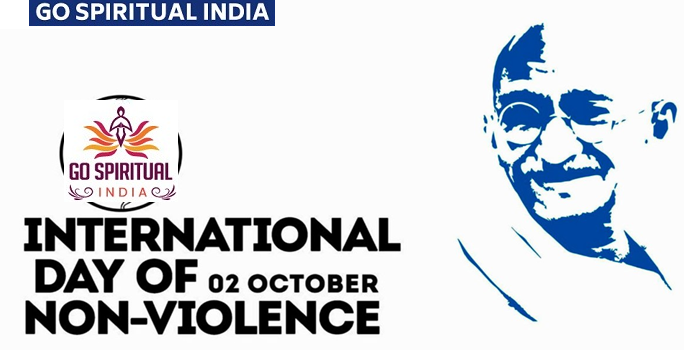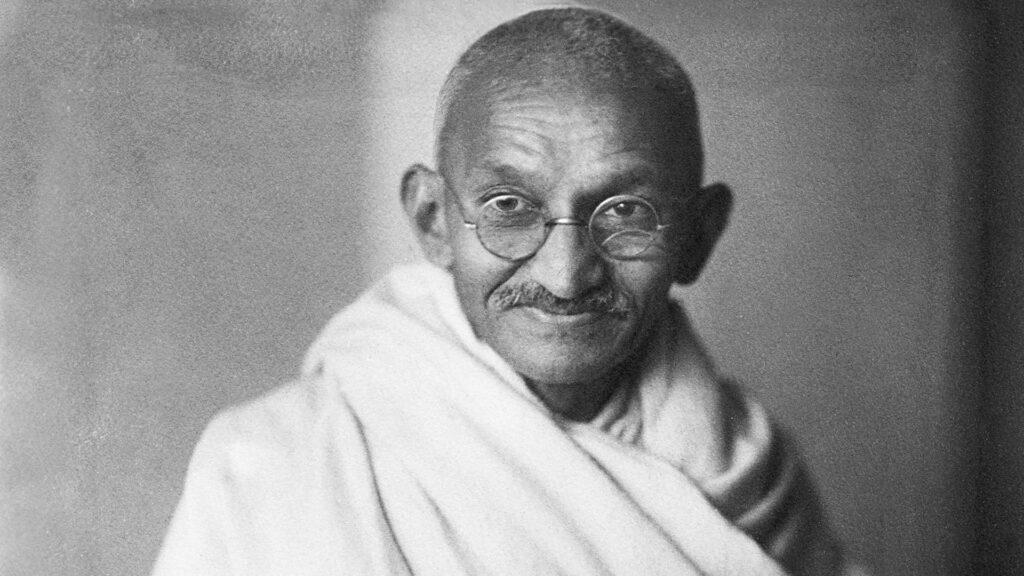
Today, as we commemorate the 155th birth anniversary of Mahatma Gandhi, the Father of the Nation, we are reminded of his profound teachings of non-violence (ahimsa) and spirituality, which continue to inspire millions around the globe. Gandhi’s ideals remain as relevant today as they were during India’s struggle for independence. His commitment to truth, simplicity, and peaceful resistance transformed the way the world viewed conflict, and his life serves as a beacon of hope for those seeking change through peaceful means.

The Power of Non-Violence
Mahatma Gandhi’s philosophy of non-violence is deeply rooted in the ancient Indian tradition of ahimsa, a principle that promotes respect for all living beings. For Gandhi, non-violence was not just a political tool but a way of life, a reflection of his spiritual beliefs. He believed that true peace could only be achieved by resisting oppression without inflicting harm on others.
Throughout the Indian freedom movement, Gandhi championed non-violence as the most potent weapon against colonial rule. His leadership in movements like the Salt March and Quit India showed the world that mass civil disobedience, when conducted peacefully, could dismantle even the most powerful regimes. The success of his approach inspired civil rights movements across the world, from Martin Luther King Jr. in the United States to Nelson Mandela in South Africa.
Spirituality at the Core
Gandhi’s commitment to non-violence was deeply connected to his spirituality. He believed that one’s actions must align with their inner truth, which is rooted in a higher power. Gandhi’s daily life was a testament to his spiritual discipline, from his adherence to the principles of self-restraint (brahmacharya) to his regular practice of prayer and meditation.
He famously said, “I have nothing new to teach the world. Truth and non-violence are as old as the hills.” This simple yet profound statement reflects his belief that true spiritual practice leads to the realization of truth, which in turn fosters compassion and non-violence.
For Gandhi, spirituality was not confined to religious rituals; it was a way of being. He believed in the universality of all religions and encouraged people to seek a higher understanding of themselves through spiritual practices. His emphasis on humility, service, and the interconnectedness of all living beings continues to resonate with spiritual seekers across the world.
Relevance Today
In a world increasingly divided by violence, intolerance, and materialism, Gandhi’s message of non-violence and spirituality holds greater significance than ever. His life teaches us that true power lies in love, compassion, and understanding. It is a reminder that peace begins within ourselves, and through self-purification and spiritual practice, we can create a more just and harmonious world.
As we celebrate Gandhi’s birth anniversary, it is important to reflect on how we can incorporate his teachings into our lives. Whether through acts of kindness, promoting social justice, or simply living with greater mindfulness, each of us has the capacity to contribute to a more peaceful and compassionate world.
This day also encourages us to revisit our spiritual roots and recognize the role of spirituality in mental well-being. In the modern era, where stress, anxiety, and social disconnection are rampant, Gandhi’s teachings can help reconnect people with inner peace, fostering better mental health through spiritual practices.
On this auspicious occasion, let us recommit to the principles of non-violence and spirituality, remembering Gandhi’s timeless words: “Be the change you wish to see in the world.”








